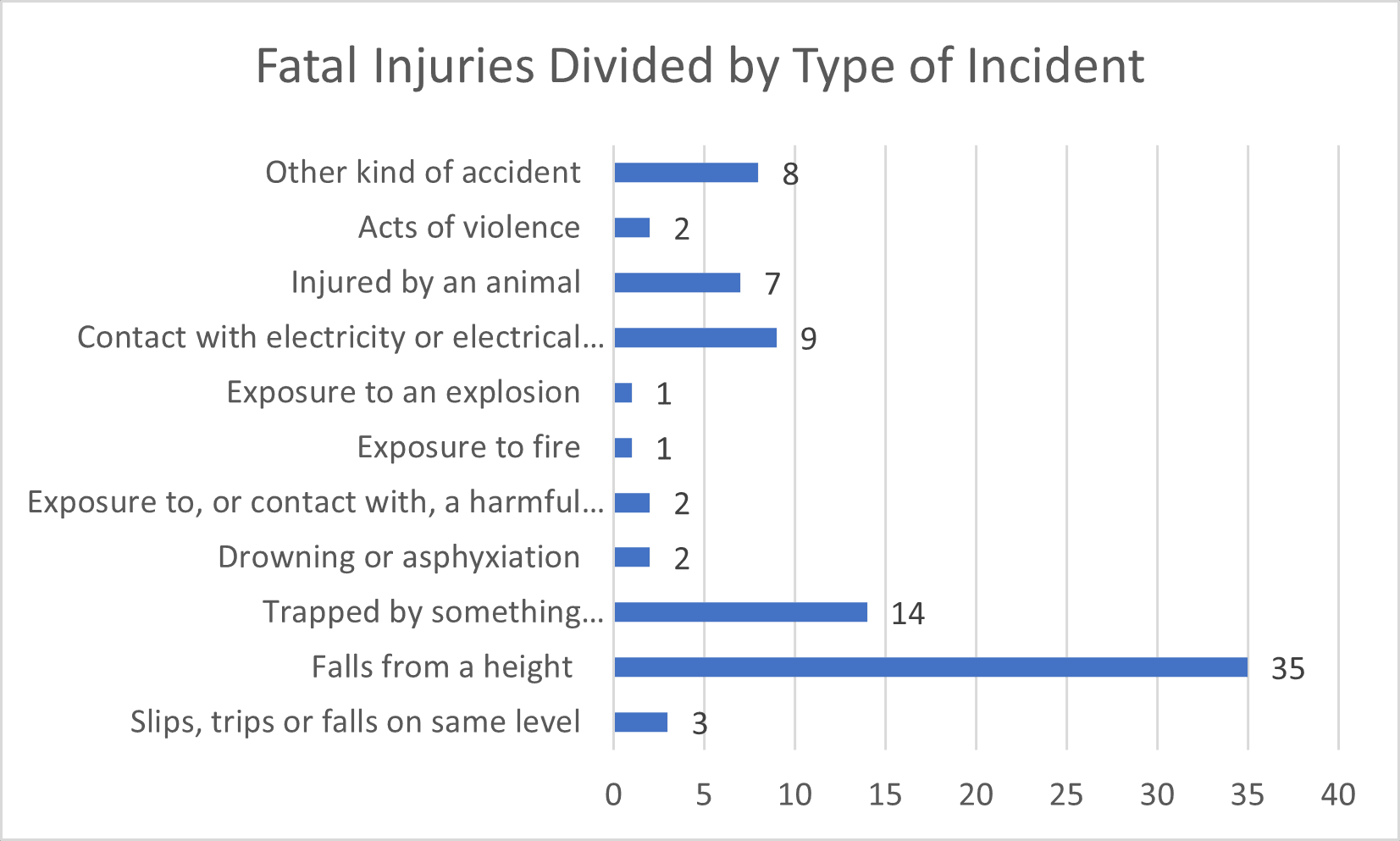By Jo Anderson. Last Updated 18th August 2023. In this guide, we will look at the process of claiming if a fatal accident occurs at work. This article will explain what constitutes a fatal accident and how these accidents can happen as the result of negligence. We will also explain the reporting procedures as well as what compensation you could receive when claiming on behalf of a loved one who has passed away.
In this guide, we look at the process of claiming compensation that acknowledges the pain and suffering of your loved one as well as some additional effects you might experience.
Our advisors are available 24/7 to answer your questions about fatal accidents at work and can help determine whether your claim is valid. If you have grounds for a claim they pass it to one of our experienced solicitors who can help you begin the claiming process and provide legal guidance. Get in touch today by:
- Calling us on 0800 073 8801
- Using our live chat feature
- Contacting us online to start your claim
Select A Section
- What Are Fatal Accidents In The Workplace?
- How Could A Fatal Accident Occur At Work?
- Where Do You Report A Fatal Accident That Occurs At Work To?
- How To Report If A Fatal Accident Occurs At Work
- What Could You Claim If A Fatal Accident Occurs At Work?
- Get Help With A Fatal Workplace Accident Claim
What Are Fatal Accidents In The Workplace?
Fatal accidents in the workplace are accidents that end in a person’s death. It can be a very daunting kind of claim to make by yourself, therefore, we urge you to hire legal guidance. If a fatal accident occurs at work due to another party’s negligence and you have lost a loved one as a result you may be eligible to claim.
There are many types of work accidents that can be fatal. However, not all fatal accidents will be the subject of a claim. In order to claim, you would need to show that the injury happened because of a breach of duty of care.
In line with their duty of care, all employers owe their employees a safe work environment. They should take all reasonably practicable steps to reduce the risk of you being injured. The Health and Safety at Work etc. Act 1974 (HASAWA) is a piece of health and safety legislation that outlines the steps an employer can take to keep the workplace adequately safe, for example, providing personal protective equipment (PPE) where necessary or clearing always of obstructions,
Contact our advisors for more information on what fatal accidents can happen at the workplace and to determine whether the employer was responsible for the injury in which your loved one lost their life.
Is There A Time Limit For Making A Fatal Accident At Work Claim?
There is legislation in place that dictates how long someone could have to make a personal injury claim for a fatal accident at work. Per the Limitation Act 1980, this type of claim can be made within 3 years from the date of death, or 3 years from the date of knowledge which is when it became known that the fatal injuries resulted from an employer breaching their duty of care. This could include the date of an inquest or postmortem.
If you would like to speak to us about how long you might have to claim for the death of a relative, or you’d like to check your eligibility to claim, please contact an advisor. They will be able to give you free advice over the phone.
How Could A Fatal Accident Occur At Work?
A fatal accident at work can happen when an employer’s negligence endangers their employees. Such examples of fatal accidents include:
- Slip, trip or falls leading to death
- Dangerous machinery malfunctions inflicting fatal injuries
- Falling from a height
- Asbestos exposure on construction sites
- Collisions or crashes with vehicles such as forklifts or delivery vans
If you’re wondering how to claim if a fatal accident occurs at work, then get in touch with our advisors for free legal advice.
How Many Fatal Accidents Occur In The Workplace
The Health and Safety Executive (HSE) documented that under The Reporting of Injuries, Diseases and Dangerous Occurrences Regulations (2013) (RIDDOR), 142 workers were killed in 2020/21.
Construction had the highest amount of reported fatal accidents amounting to 39 incidents. The main category of fatal accidents sustained by workers were falls from a height of which there were 35. Please see the following graph for a summary of reported fatal injuries in 2020/21.
Where Do You Report A Fatal Accident That Occurs At Work To?
The HSE’s reporting accidents and incidents at work document states deaths from fatal accidents are included under the RIDDOR list of reportable injuries. Reportable injuries are ones that the responsible person must report to the HSE.
To determine whether a fatal accident was work-related you must consider if the incident was caused by:
- The way the work was organised, supervised or carried out
- Any substances, equipment or machinery used at work
- The condition of the work environment
The responsible person should report the fatal accident in accordance with the relevant procedures. A report should be received within 10 days of the incident occurring.
Contact our advisors for free legal advice about where a report should be made if a fatal accident occurs at work.
How To Report If A Fatal Accident Occurs At Work
The UK GOV website states that if an employee died from a fatal accident it can be reported by:
- Calling the police
- Informing the HSE by calling 0845 300 9923
- Reporting online
For more information on how a fatal accident can be reported, contact our advisors for free legal advice.
What Could You Claim If A Fatal Accident Occurs At Work?
If your claim succeeds for a fatal accident that occurs at work you will receive fatal accident compensation. Youou could be eligible to receive compensation that reflects the pain and suffering of the deceased as well as your bereavment at having lost a loved one.
Fatal accident claims are subject to the Fatal Accident Act 1976 (FAA) legislation which allows certain relatives to qualify for compensation if their loved one has passed away because of employer negligence. In fatal accident claims, there are different heads of loss you can claim for, which include:
- Compensation for the suffering of the deceased
- Funeral costs, such as for a headstone
- Bereavement award
- Dependancy award, including a financial dependancy payment reflecting a loss of earning. However, you could also claim a loss of services dependancy where you’re compensated for assistance or tasks that the deceased would have performed if they were still alive.
The Judicial College Guidelines (JCG) outlines some guideline compensation brackets placing values on the types of injuries and their severity level. Below is a table that outlines some of these brackets:
| Injury | Compensation | Notes |
|---|---|---|
| Tetraplegia (also known as Quadriplegia) (a) | £304,630 to £379,100 | Compensation award will depend on factors like level of awareness, presence of pain and life expectancy. |
| Paraplegia (b) | £205,580 to £266,740 | Compensation award will depend on factors like level of awareness, presence of pain and life expectancy. |
| Very severe brain damage (a) | £264,650 to £379,100 | Little or no meaningful environmental response or language function. |
| Psychiatric Damage (General) | £51,460 to £108,620 | Where ability to cope with life and relationships is impacted. |
| Fatality plus add on claims | Up to £550,000 and over | This could encapsulate compensation for the pain and suffering of the person who passed away, as well as any dependency payments such as lost income or lost services. |
A bereavement award may also be available; this is a payout of £15,120 made to eligible relatives of the deceased. Eligible parties can include:
- The spouse
- A cohabiting partner
- Parents of a minor, or mother of an illegitimate minor
Please be aware that if multiple eligible parties apply for a bereavement award then the monetary amount is divided equally between said parties.
Contact our advisors today to find out more about the Fatal Accidents Act 1976 and the process of claiming compensation for a fatal accident that occurs at work because of employer negligence.
Get Help With A Fatal Workplace Accident Claim
A No Win No Fee is another term for a Conditional Fee Agreement (CFA), which can be beneficial. This is because hiring a No Win No Fee lawyer requires no upfront cost and you pay nothing if your claim fails.
The only time your lawyer will take payment is through a success fee, and this only applies if you’re awarded compensation. This fee is a small, legally-capped percentage of your compensation that will cover your lawyer’s legal costs.
If you would like to know more about your legal rights after a fatal accident occurs at work, then contact our advisors today and they can help determine whether your claim is valid. They may pass it to our one of our expert solicitors who can help you start your claim. Get in touch by:
- Calling us on 0800 073 8801
- Using our live chat feature
- Contacting us online to start your claim
Related Fatal Accident Claim Guides
If you need more information please read our other helpful articles:
Health And Safety Breach Claims Against Employers
Will Suing My Employer Create Problems?
Different Types of Fatal Injury
How To Make An Accident At Work Claim
Or, read our external links:
Government’s guide to applying for probate
Contact our advisors if you would like to understand more about claiming for a fatal accident that occurs at work.
Guide by JE
Edited by FS


